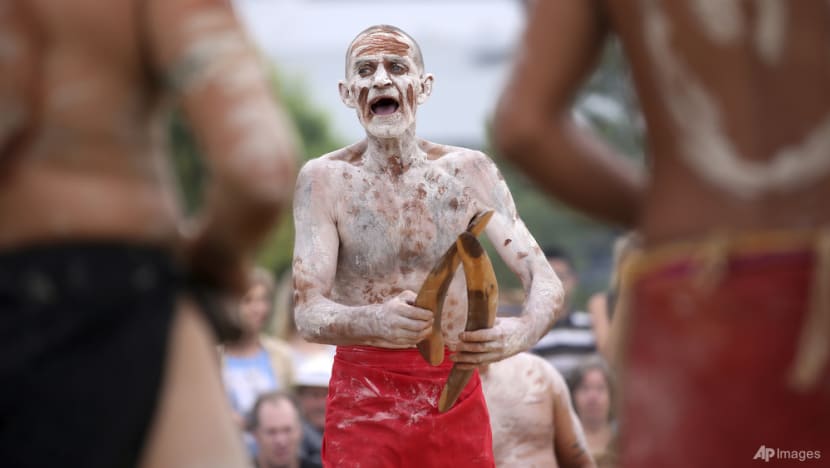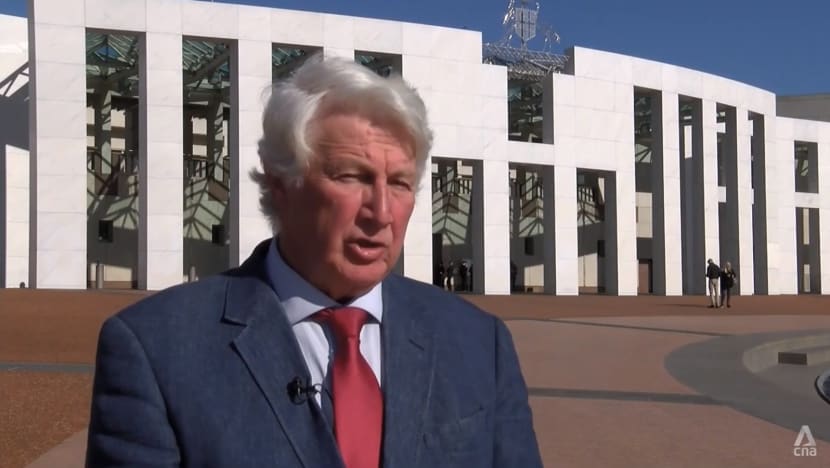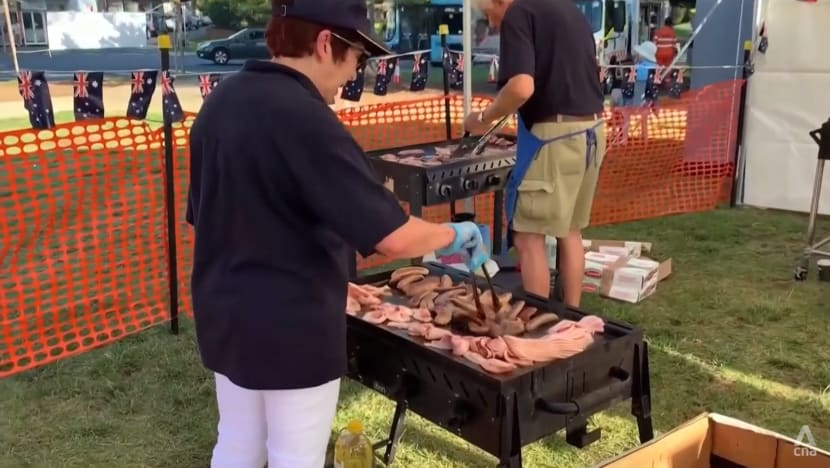Australians divided over proposed referendum on rights of indigenous people
The vote, designed to give Australia’s First Nations people a bigger say in their own affairs, is expected to be given the go-ahead by the federal parliament in Canberra next month.

CANBERRA: A national debate over the rights of indigenous people is dividing Australians, ahead of a proposed referendum to recognise them in the constitution.
The vote, designed to give Australia’s First Nations people a bigger say in their own affairs, is expected to be given the go-ahead by the federal parliament in Canberra next month.
Likely held towards the end of the year, the referendum will ask Australians: “Do you agree that the constitution should recognise the First Peoples of Australia by establishing an Aboriginal and Torres Strait Islander Voice?”
However, the outcome of the national vote remains far from certain, with the issue splitting “Yes” and “No” campaigners across the country.
If the referendum wins a “Yes” vote, it will be heralded as a victory for Australia’s often neglected segment of indigenous people.
An unsuccessful referendum, on the other hand, could damage Australia’s image on the world stage, in terms of its racial inclusivity.
CONSTITUTIONAL CHANGE
Mr Dennis Shanahan, political editor of national broadsheet The Australian, called the referendum “an enormous issue” for Australia.
“If the referendum is passed, it will make a huge change. It will be a constitutional change, very rare in Australia. And it will have a big impact on the government and parliament,” he explained.

Critics fear a “Yes” vote would give indigenous Australians the chance to actively influence the decisions of the executive government, and make the country virtually ungovernable by constantly challenging policy decisions through the courts.
However, those who have been fighting for the rights of First Nations people for years said those fears are unfounded, when addressing a recent parliamentary committee.
“The provision is not going to create a separate democracy. You are the democracy. Our Senate and House of Representatives is our democracy. What the Voice does is improve it,” indigenous leader Noel Pearson said.
ENTRENCHED DISADVANTAGE
Many First Nations people face perceived inequality, and have been striving for change by spreading their messages at rallies across the country.
Advocates say they live in third world conditions, and face racism in the nation.
They also experience a much higher child mortality rate than average, and a disproportionate number of them end up unemployed or behind bars.
The establishment of an Aboriginal and Torres Strait Islander Voice could end centuries of such entrenched disadvantage, supporters say.
Independent senator David Pocock told CNA: ”I am hopeful there will be a positive outcome, that Australians will see this for the generous offer that it is, for First Nations people to say, ‘Let’s walk hand in hand into the future. Allow us to have our say on laws and policies that affect us’.”
LEGAL AND FINANCIAL RAMIFICATIONS
Meanwhile, there are some people in Australia who are sympathetic to the First Nations cause but remain proud of the country’s achievements since the British arrived more than two centuries ago.
This is celebrated every year typically with a barbecue breakfast on Australia Day, which falls on Jan 26.

This tradition, however, may be lost if Aboriginal supporters get their way and change the name to Invasion Day.
The “No” camp is gaining ground with many believing that the referendum has not been fully explained, nor the legal and financial ramifications explored.
Former Prime Minister Tony Abbott said: “I think this Voice is wrong in principle and it’s potentially quite dangerous in practice. I think it’s wrong to divide our country on the basis of ancestry. I think it’s a mistake to give about 4 per cent of the population more of a say in how our government and our parliament work, than everyone else.”
A lot is riding on the result of this referendum, including Australia’s global image.
"There is that danger that once again we will be seen as the white trash of Asia who have voted against and racially against a minority of indigenous Australians,” said Mr Shanahan.
Editor's note: The date of Australia Day has been corrected. We apologise for the error.
















